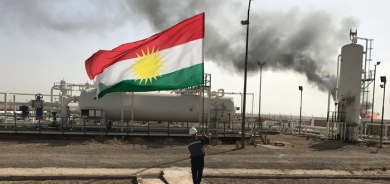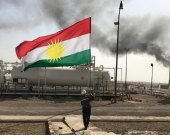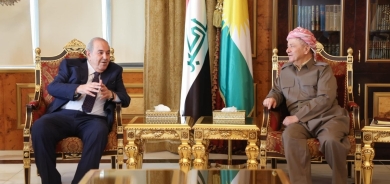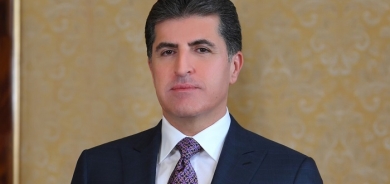Iraqi activist's killing sparks protests against impunity
A leading Iraqi anti-government activist was killed early Sunday, security sources and activists said, sending supporters of a protest movement onto the streets to demand an end to bloodshed.
Ihab al-Wazni, a coordinator of protests in the Shiite shrine city of Karbala, was a vocal opponent of corruption, the stranglehold of Tehran-linked armed groups and Iran's influence in Iraq.
He was shot overnight outside his home by men on motorbikes, in an ambush caught on surveillance cameras. His death was confirmed by security forces and activists.
Wazni narrowly escaped death in December 2019, when men on motorbikes used silenced weapons to kill fellow activist Fahem al-Tai as he was dropping him home in Karbala, where pro-Tehran armed groups are legion.
Both were key figures in a national protest movement that erupted against government corruption and incompetence in Iraq in October 2019.
Around 600 people were killed as a result of their association with that movement -- many on the streets during rallies, others targeted on their doorsteps away from the rallies.
Protests broke out in Karbala, Nassiriya and Diwaniya in southern Iraq in reaction to Wazni's killing, as people called for an end to the bloodshed and to rampant corruption.
In a video recording in the morgue where his body was initially held, a fellow activist made it clear who he and colleagues blamed for the killing.
"It is the Iranian militias who killed Ihab," said the unnamed activist. "They are going to kill all of us! They threaten us and the government remains silent."
Police in Karbala said they "will spare no effort" to find "the terrorists" behind Wazni's killing.
Politicians, including Shiite leader Ammar al-Haki, deplored the killing and called for justice.
Around 30 activists have died in targeted killings and dozens of others abducted, some detained briefly, since October 2019.
Such targeted killings are normally carried out in the dead of night by men on motorbikes, and nobody claims responsibility.
Activists and the UN repeatedly blame "militias".
Authorities have consistently failed to identify the perpetrators of these political killings.
Prime Minister Mustafa al-Kadhemi took office a year ago, vowing to rein in rogue factions, fight corruption and roll out long-awaited reforms after years of war and insurgency.
Pro-Iran groups view the premier as being too close to Washington and protesters believe he has failed to deliver on his promises.
"Such crimes against activists in Iraq raise again the question about the real steps of the government regarding accountability for... (those) responsible for crimes" targeting protesters, Ali Bayati, a member of Iraq's Human Rights Commission, tweeted Sunday.
Wazni had himself challenged Kadhemi in a Facebook post in February, asking rhetorically: "Do you know what is going on? You know that they kidnap and kill -- or you live in another country?"















